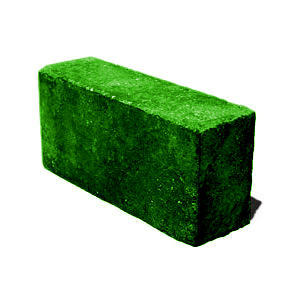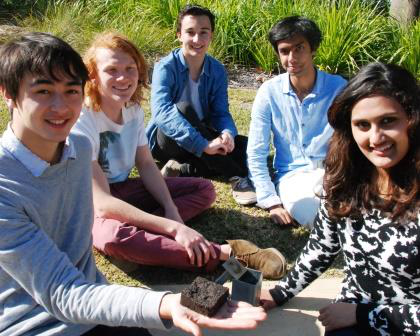Students stamp rice into shape of salvation
 Small bricks of compressed rice husk could save Nepalese women and children hours of hard labour and improve their health.
Small bricks of compressed rice husk could save Nepalese women and children hours of hard labour and improve their health.
Engineers at the University of Sydney have devised a simple, affordable alternative to the daily drudgery of gathering firewood from remote forest areas - a charcoal briquette machine.
The machine compresses rice husk waste into compact, smoke-free, easy-to-store fuel solutions.
The exciting design has taken out this year's Advanced Professional Engineering Prototype Demonstration judged by delegates from engineering firm, WorleyParsons.
Liam Heidt, a first year engineering student says the device is aimed at three key issues facing a region once famous for its formidable Ghurkha military force - poor health, financial hardship and lack of schooling in the region.
“In the Sandikhola area food gathering and preparation is the main activity of the village. It is centred on the male of the house working in the rice paddy fields and the women and children collecting necessary elements for preparing and cooking the food, such as firewood,” Mr Heidt says.
“So much time is spent gathering the wood that children miss out on an education and the cycle of poverty persists.
“The wood is also burned inside homes with little or no ventilation.
“The harmful gases, ash, particulates and sulphur compounds are trapped within the home causing serious health problems such as pneumonia, acute bronchiolitis and even low birth weight,” he said.
Fellow team member Aishwarya Cherian says the group wanted to design a solution that would be long-term and self-sustaining, to empower the local people.

“Time saved gathering firewood can be used to improve their quality of life, educate the children and provide an independent income,” she says.
“While researching for the project we discovered a group of women in Uganda who collect biodegradable waste from rubbish dumps and compress them into fuel balls and sell them to locals.
“We believe the excess briquettes made in Sandikhola could be sold at the local market, improving the economic position of the villagers,” Ms Cerian said.
The group will present the Charcoal Briquette Machine at the 2014 Engineers Without Borders Challenge in December.







 Print
Print